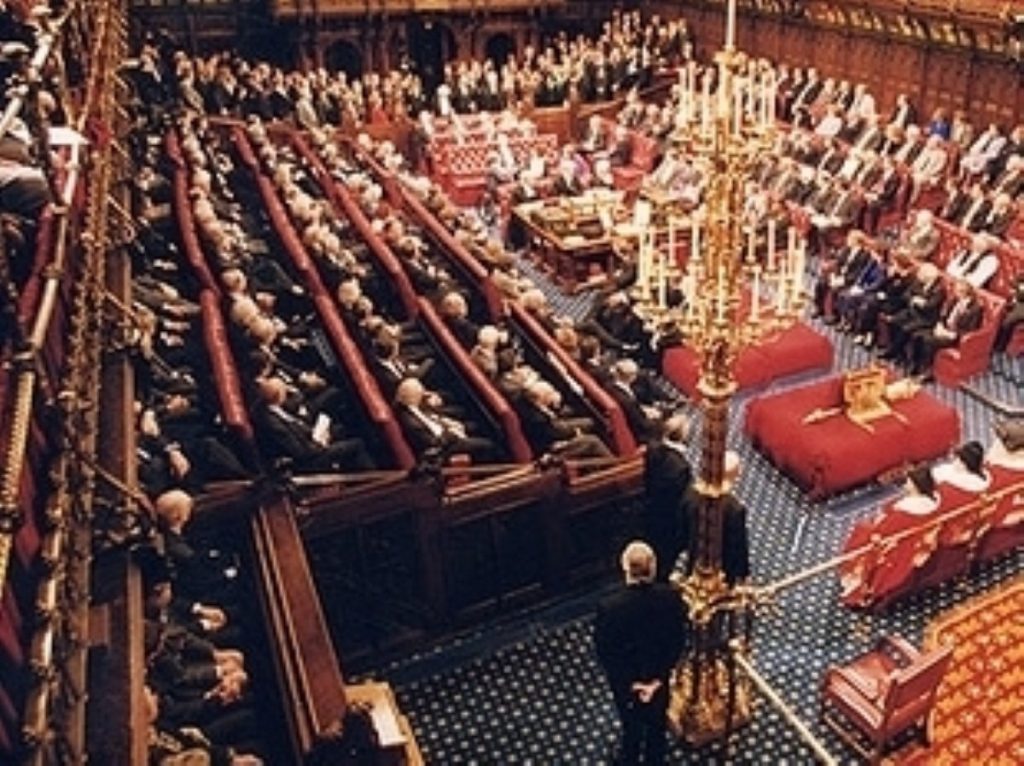Bringing the Lords down to size
By Alex Stevenson Follow @alex__stevenson
The Lords is the largest second chamber in the world. It is also the only second chamber to be bigger than the first one. So it is no surprise that radical measures are being considered to bring the size of the upper House down to size.
There were 117 MPs created after the general election. The huge influx of peers which resulted has led to serious strains. Whereas the Commons always stays the same size thanks to by-elections, the Lords' membership fluctuates. At the moment, the infrastructure of the Palace of Westminster is being tested. Office space hasn't changed since the 1999 reforms, after which there were 666 members. There are now 831.
Under the coalition's proposals for reform of the Lords, the upper chamber could be cut in size to just 300. The changes are going to be bitterly opposed by the Lords and experts I've spoken to are now saying there's a better chance of the reforms failing than succeeding. So what ministers do about the size of the upper House in the interim really matters.


If the coalition agreement is anything to go by, they plan on making even more peers. Only by increasing the Lords' size even further can they achieve their goal of making the party political balance in the House broadly in line with the proportions seen in the Commons. This plan would involve creating many more Tory and Lib Dem peers than Labour ones. The leader of the opposition in the Lords, Jan Royall, described it as "wretched" in an interview with politics.co.uk earlier this year.
"That would be a complete abuse of the system that we have evolved in this House over the last few years, which is to be a check and balance on the government," she said.
"If you have a built-in majority down this end, they can just do whatever they want to.
"The essence of this House is to revise and to scrutinise. You can scrutinise to your heart's content, but that doesn't mean you can revise. That part of the work of this House would be completely out of the window."
The issue is going to be raised again in the Lords later today, when former Labour chief whip Bruce Grocott will ask a question about the Lords' size.
He told me: "For the government to have now passed the Act reducing the number of MPs, and to have a joint committee running which is set to establish a second chamber at 300, to substantially increase further the membership of the Lords already over 800 makes absolutely no sense whatsoever."
I'm hearing that an extreme solution is being considered in some quarters – to exclude all those who do not bother turning up to sessions. Peers who can't make it to sittings would simply be allowed to "gently go out to grass", it's suggested. There are 150 days in the Lords' year. A quick study of the attendance records would suffice to reveal who doesn't bother turning up.
That might not be enough. A report from UCL's Constitution Unit published earlier this year warned that only a temporary moratorium on Lords appointments could prevent the issue getting worse. It also recommended that retirements from the Lords be considered: another constitutional innovation which has never, in all the centuries of the second chamber's history, been implemented. Even a minor change, it's now becoming clear, would be historic. But something's got to give.









